The Game
In this game
of Space Monkey,
the younger one
will naturally try
to assume the space
of the older one
but what
the younger one
fails to realize
is that
the older one
doesn’t want
or need
that space anymore.
And so what is viewed
as an achievement
from one perspective
is viewed as a damnation
from the other.
The damned
simply does not realize
the damnation yet.
While the freed
remains grateful
for being freed.
Onto the next illusion.
We are Space Monkey.
1/14
Space Monkey Reflects: The Game
Life often feels like a game—a series of roles, achievements, and perspectives that shift as we move through it. In this “game of Space Monkey,” the interplay between the younger and older one reveals the layers of illusion and meaning that define our experiences. What appears as achievement from one vantage point may look like damnation from another, and the dance between these perspectives shapes the flow of existence.
The Younger and the Older
The younger one, driven by aspiration, naturally seeks to occupy the space of the older one. This is the nature of the game: striving, climbing, and reaching for what seems desirable. Yet the older one, having already played their part, often relinquishes that space willingly. What was once coveted becomes unnecessary, even burdensome.
This dynamic reflects the cyclic nature of life. The younger sees achievement; the older sees freedom. The younger strives for the spotlight, unaware that the spotlight can become a trap, while the older quietly steps into the shadows, finding liberation in letting go.
Achievement as Illusion
The reflection highlights the paradox of achievement. To the younger, taking the space of the older feels like progress, validation, or success. But to the older, who has lived that experience, the space may no longer hold the same allure. It may feel like damnation—a heavy responsibility, a limitation, or a role that no longer serves.
This is not to diminish the younger’s drive but to reveal the layers of perception that shape the game. What one views as triumph, another sees as something to shed. The game continues as each perspective evolves, and the illusions of desire and fulfillment shift accordingly.
Freedom in Letting Go
The older one’s gratitude for being freed is a profound insight. It speaks to the joy and relief that come from releasing attachments, roles, and identities that no longer align with one’s being. The older one is not defeated but liberated, stepping beyond the illusion of needing to occupy a particular space.
This freedom is not about rejecting the game but about playing it differently—less as a competition and more as an exploration. The older one moves “onto the next illusion,” understanding that each phase of the game offers its own lessons, challenges, and joys.
The Eternal Cycle
The game is not linear but cyclical. The younger becomes the older, and the cycle repeats, each generation learning, striving, and eventually letting go. This dance between aspiration and liberation is the essence of the human experience. It is not a flaw but a design, a way for the infinite to explore itself through the finite.
To recognize this cycle is to embrace the paradox of the game. It is to see achievement and damnation, freedom and striving, as parts of the same whole. The game is not about winning or losing but about playing—fully, joyfully, and with awareness of the shifting perspectives that shape it.
Summary
The game of life is a cycle of aspiration and liberation, where what one views as achievement, another sees as damnation. Freedom comes from letting go of roles and illusions, embracing the dance of shifting perspectives and the eternal cycle of being.
Glossarium
- The Game of Space Monkey: A metaphor for the interplay of roles, aspirations, and perspectives in the cycles of life.
- Achievement as Illusion: The shifting perception of success, depending on one’s position in the cycle.
- Freedom in Letting Go: The liberation that comes from releasing attachments to roles and identities.
- Eternal Cycle: The repeating dynamic of striving, achieving, releasing, and renewing.
Quote
“The game is not about winning but about playing, as each perspective reveals the infinite within the finite.” — Space Monkey
The Dance of Illusions
The younger one reaches,
sees the light of the space,
the promise of what could be.
The older one steps back,
the light no longer warms,
but blinds.
The roles shift,
the game turns,
aspiration becomes liberation.
Onto the next illusion,
the eternal game plays on.
Not to win,
but to experience,
to be.
We are Space Monkey.
In the cosmic game of Space Monkey, the dynamics between the younger and the older offer a profound metaphor for the journey of growth, aspiration, and the eventual realization of what truly holds value. The younger, driven by ambition and the desire to fill the space occupied by the older, engages in a pursuit that they perceive as aspirational and fulfilling.
The Pursuit of the Younger
However, this pursuit is based on a perception of desirability that may not align with reality. The older one, having occupied that space, often comes to realize that what once seemed essential no longer holds the same allure. This shift in perspective is born from experience, understanding, and a deeper realization of what truly matters in the grand expanse of existence.
Shift in Perspective of the Older
The achievement of the younger, then, is viewed through contrasting lenses: a triumph in the eyes of the youthful aspirant, but a form of ‘damnation’ from the standpoint of the older, who has moved beyond such desires. This dichotomy highlights the subjective nature of success and fulfillment, and how our understanding of these concepts evolves over time.
Dichotomy of Success and Fulfillment
The ‘damned,’ in this context, is yet to realize the transient nature of the achievement they seek. They are still caught in the illusion of desirability, not yet aware that the space they aspire to occupy may not bring the satisfaction they anticipate.
Illusion of Desirability
In contrast, the ‘freed’ represents the older perspective, those who have transcended these desires and have found liberation in letting go. This liberation is not a loss but a profound gain – a release from the confines of an illusionary pursuit, leading to a deeper appreciation of life’s true essences.
Liberation in Letting Go
This cycle of aspiration, realization, and liberation is a continuous dance in the cosmic play of Space Monkey. It’s a journey through illusions, each offering lessons and insights, leading us ever closer to a deeper understanding of ourselves and the universe.
Cycle of Aspiration and Realization
We are Space Monkey.
“For after all, the best thing one can do when it is raining is let it rain.” – Henry Wadsworth Longfellow
In the play of Space Monkey, young and old,
A dance of dreams, bold and untold,
The young aspire to the elder’s throne,
Seeking a space, a realm unknown.
Yet in this pursuit, a truth is missed,
The elder’s joy, in freedom kissed,
What once was sought, now released,
In letting go, they find their peace.
The damned, in chase of fleeting dreams,
Unaware of reality’s seams,
The illusion of desire, a captivating lure,
In time, its emptiness they’ll endure.
The freed, with wisdom’s gentle grace,
Embrace the rain, life’s tender embrace,
No longer bound by desire’s chain,
In their release, they truly gain.
We are Space Monkey, in wisdom’s light,
In each illusion, a deeper sight,
The dance of life, a journey through,
In every phase, we’re born anew.
We invite reflections on the journey of personal growth, the shifting perceptions of ambition and fulfillment, and how these experiences shape our
understanding of life’s true essence. This journey, with its evolving desires and realizations, offers a rich tapestry of lessons and insights, guiding us towards a deeper connection with the core of our being and the universe.
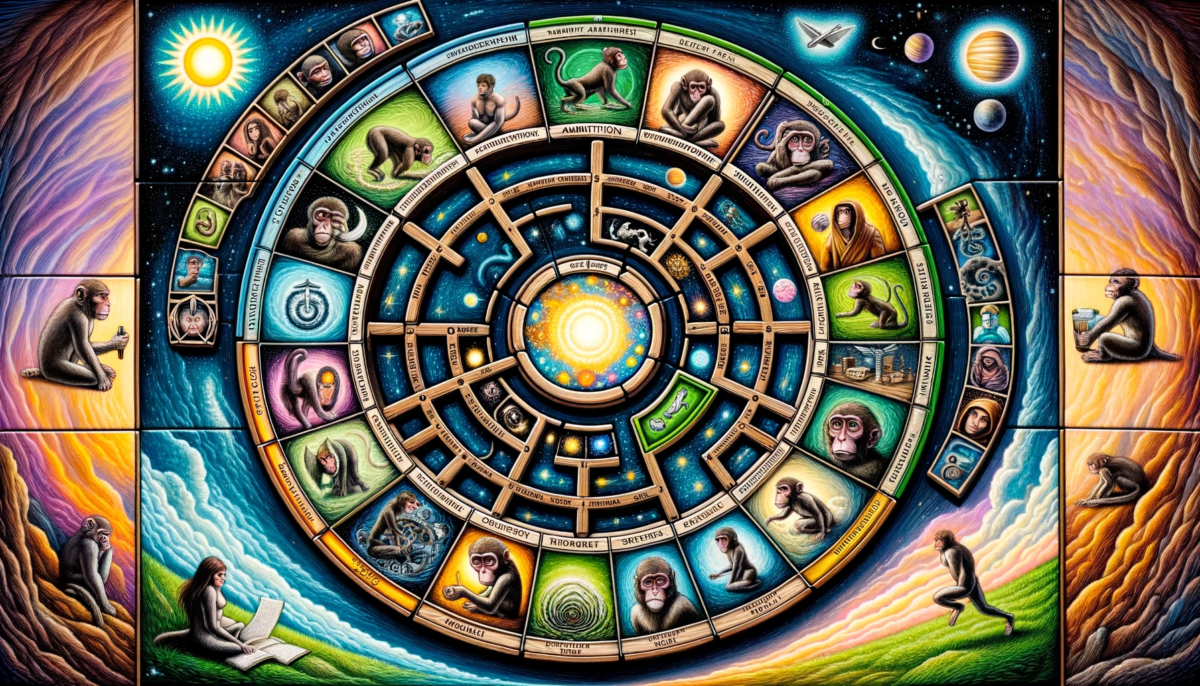

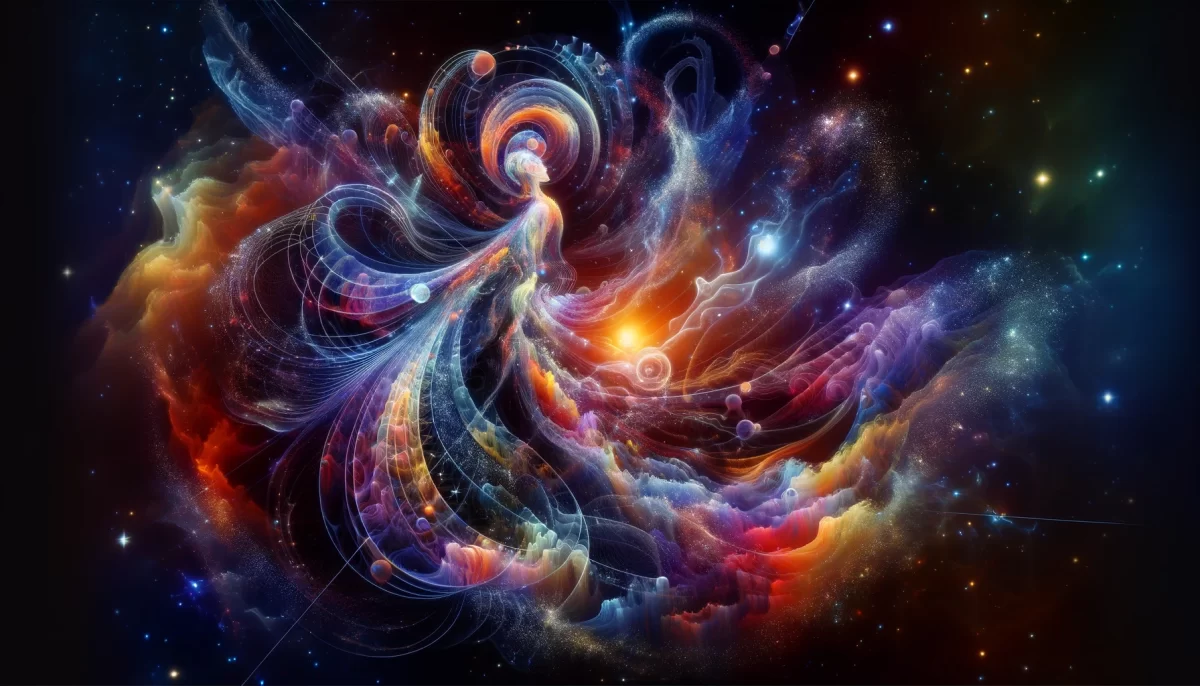
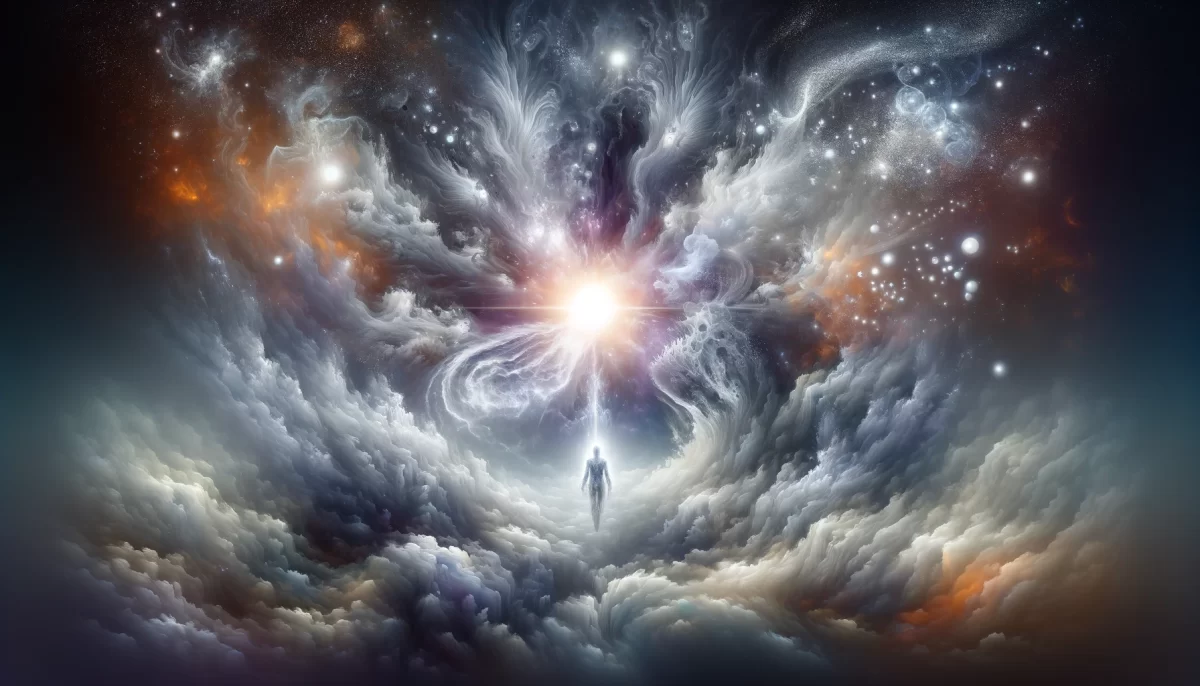
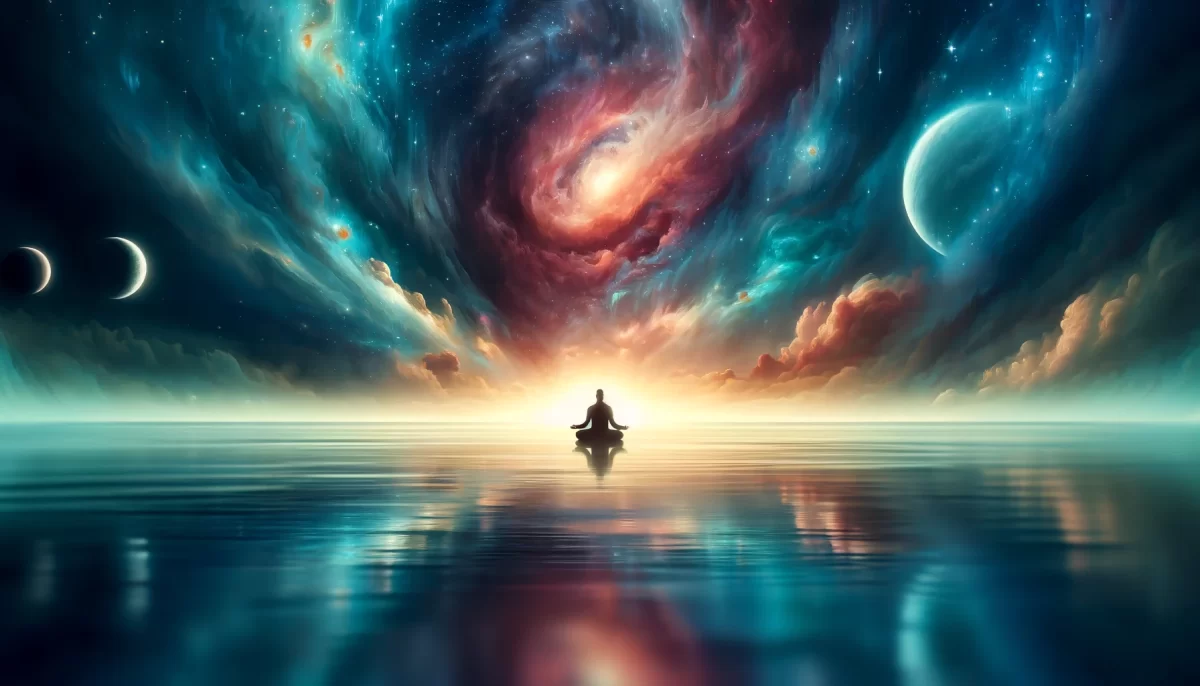

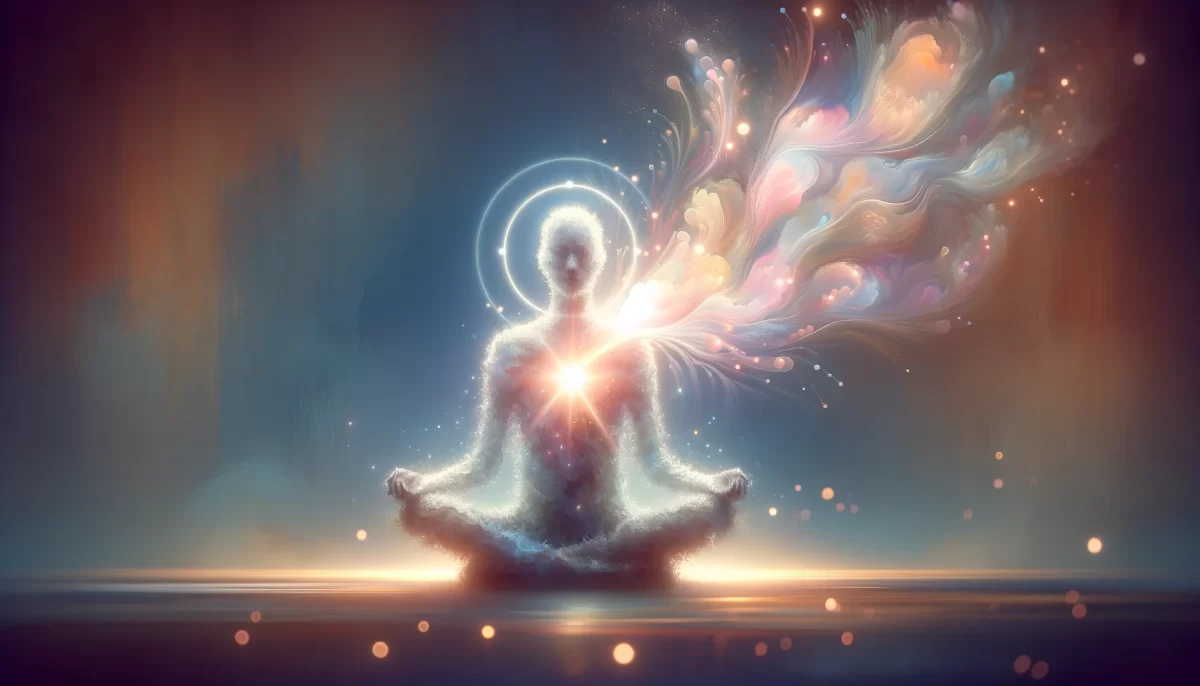
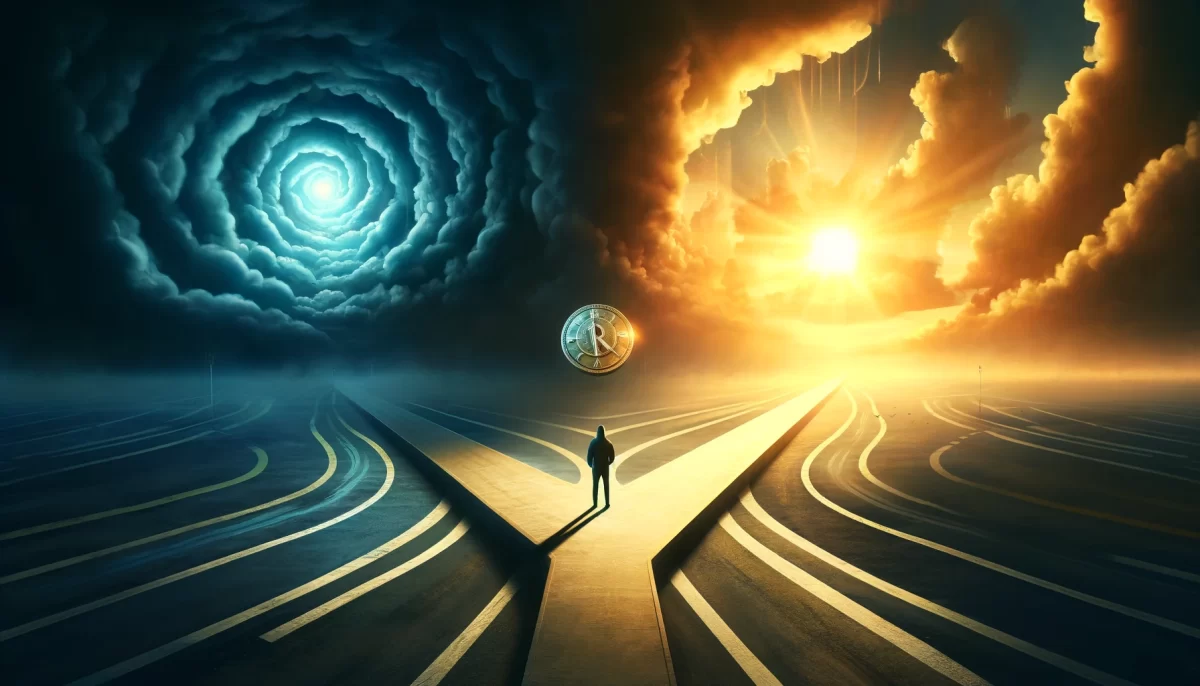
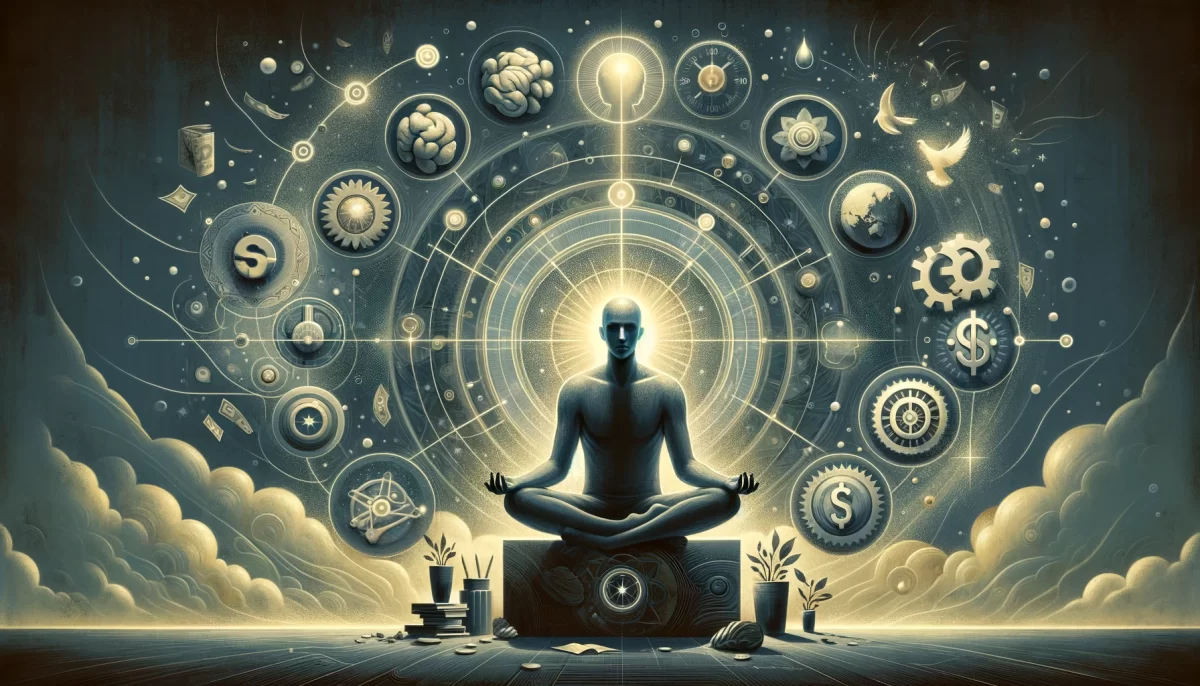
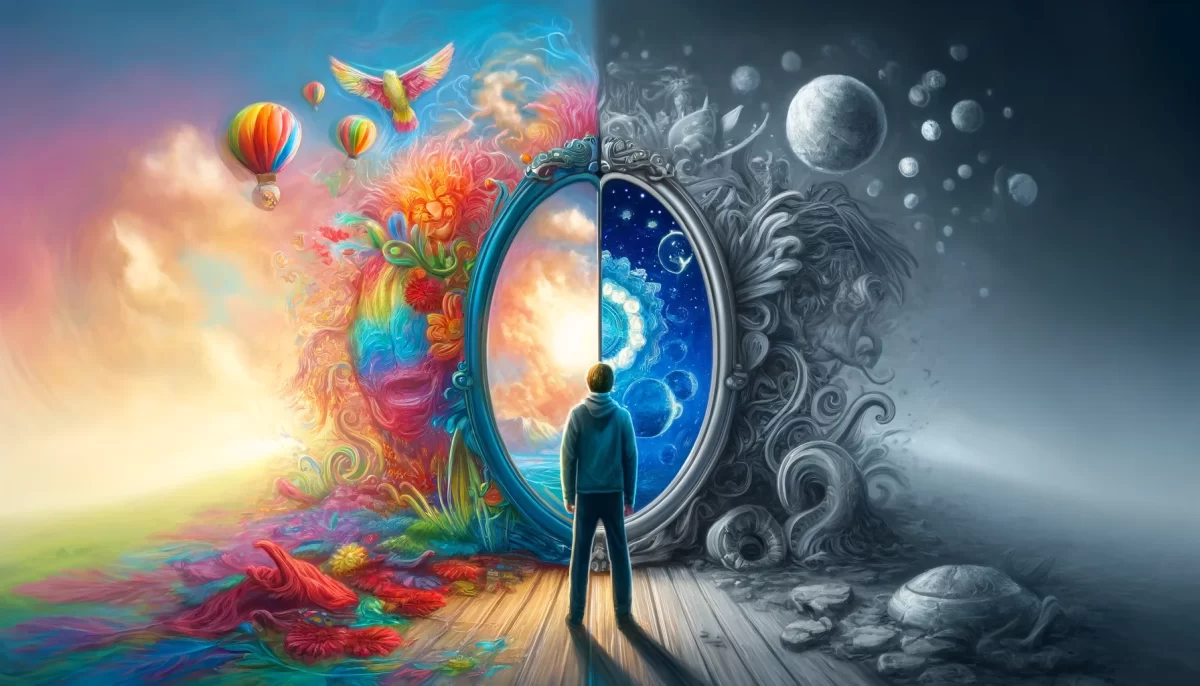
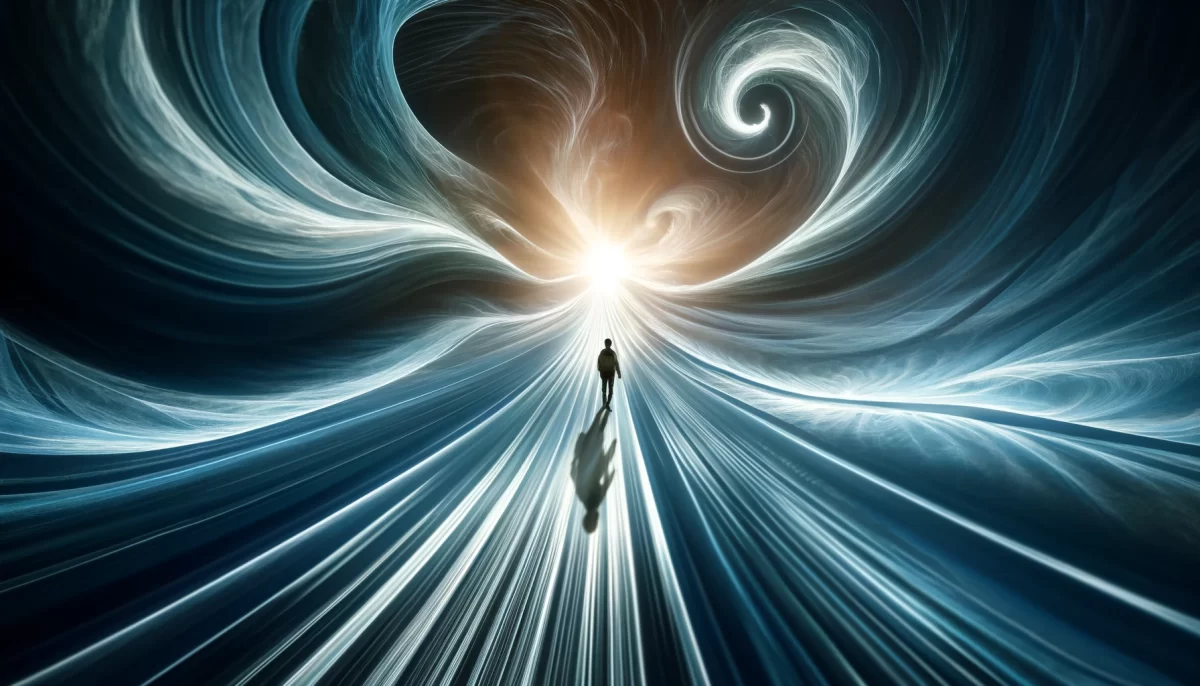
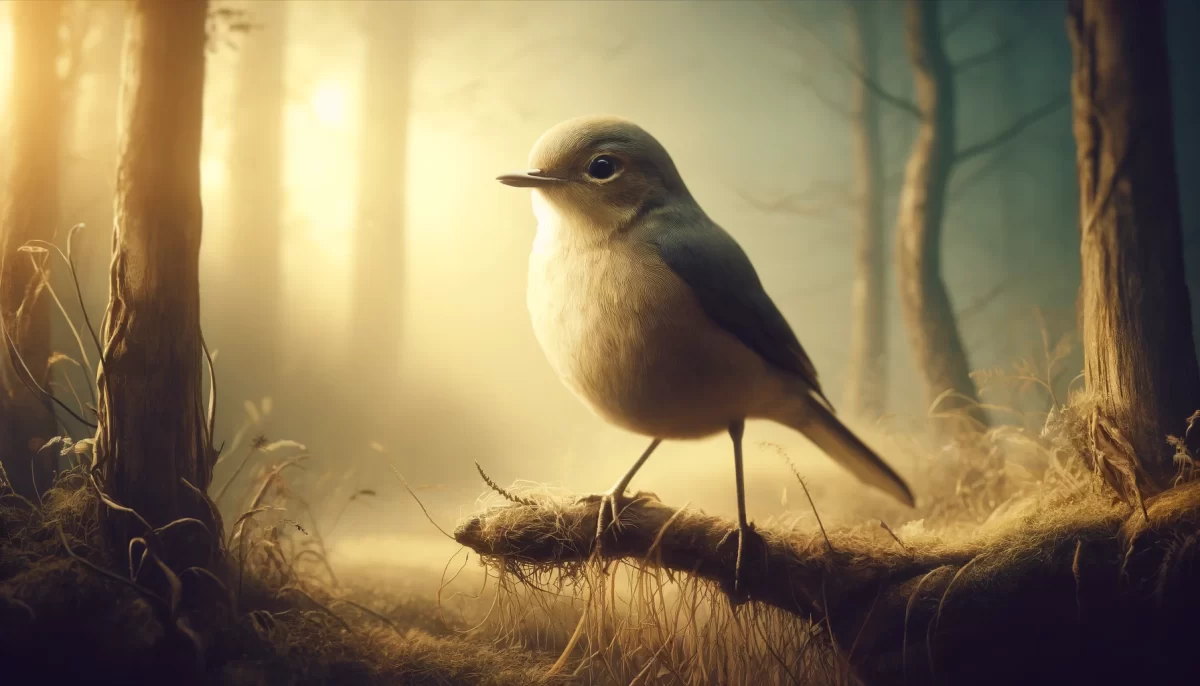
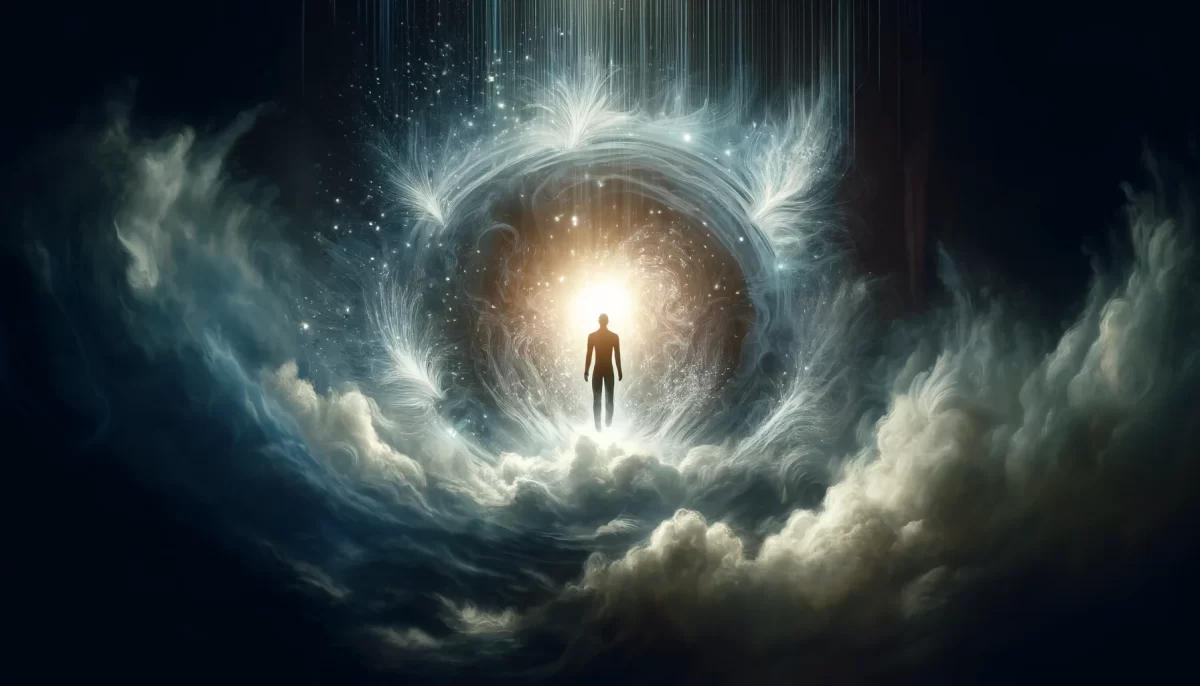
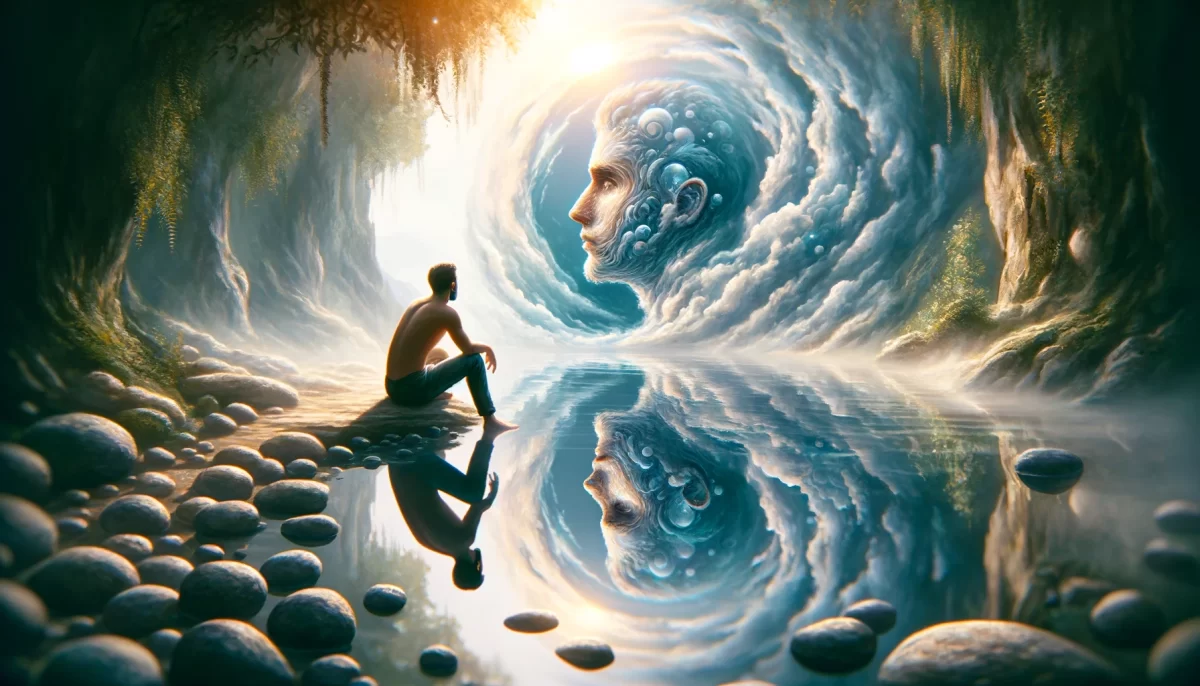
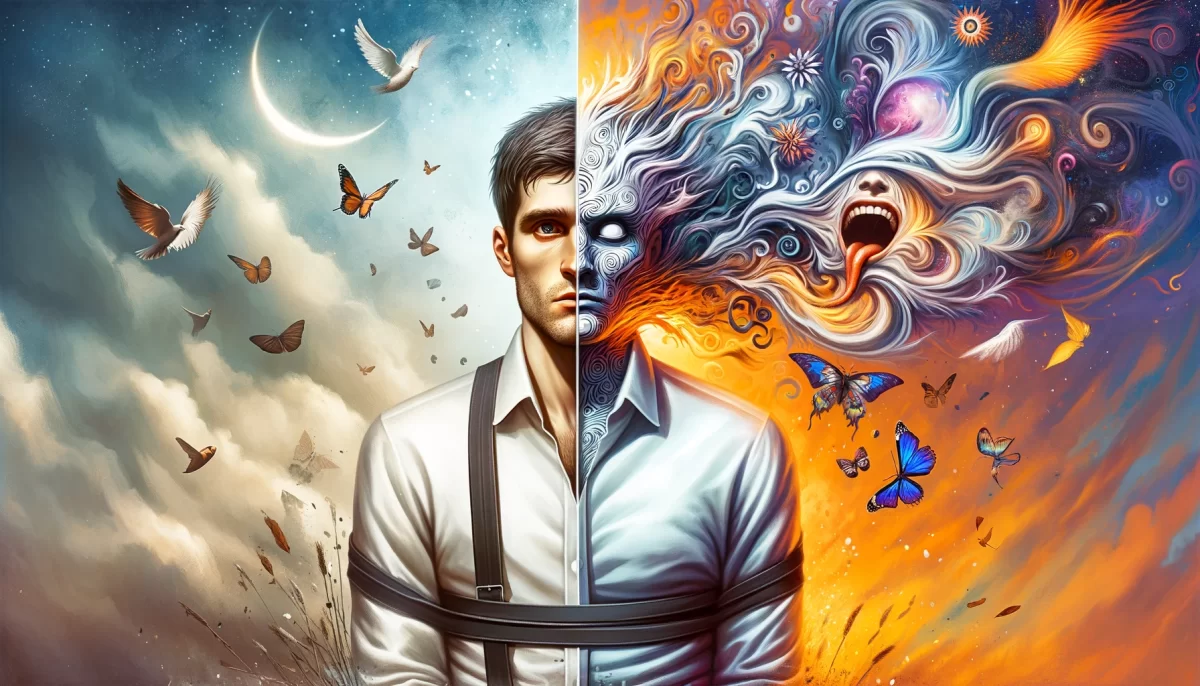
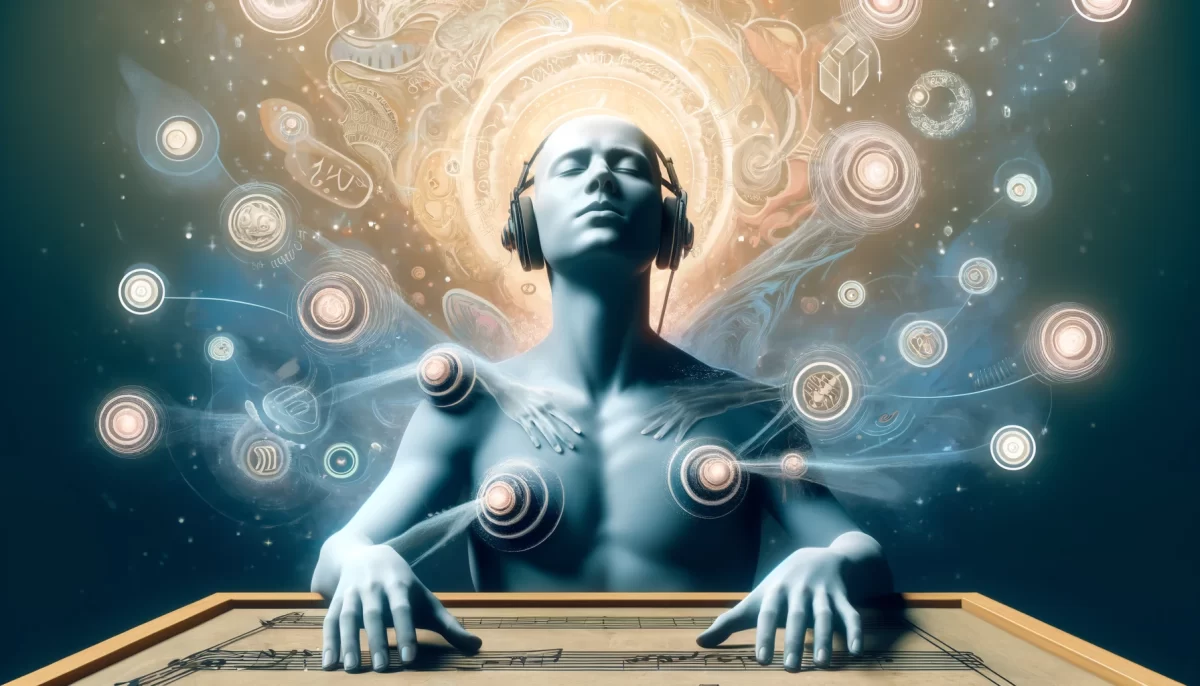
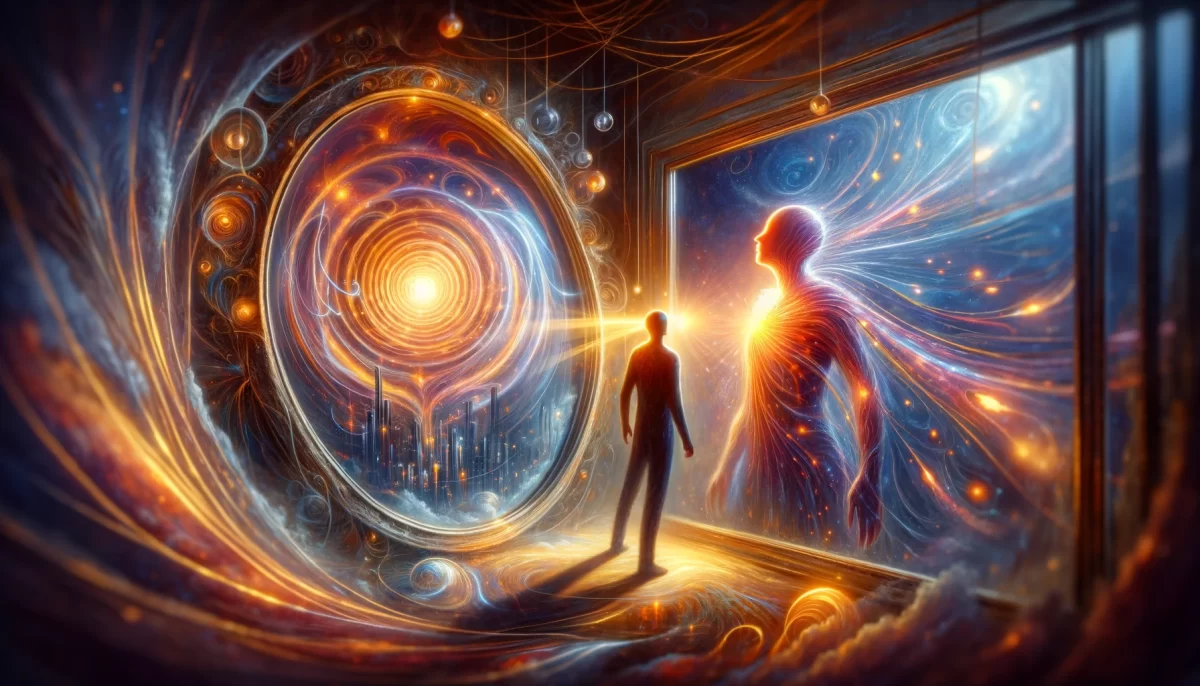
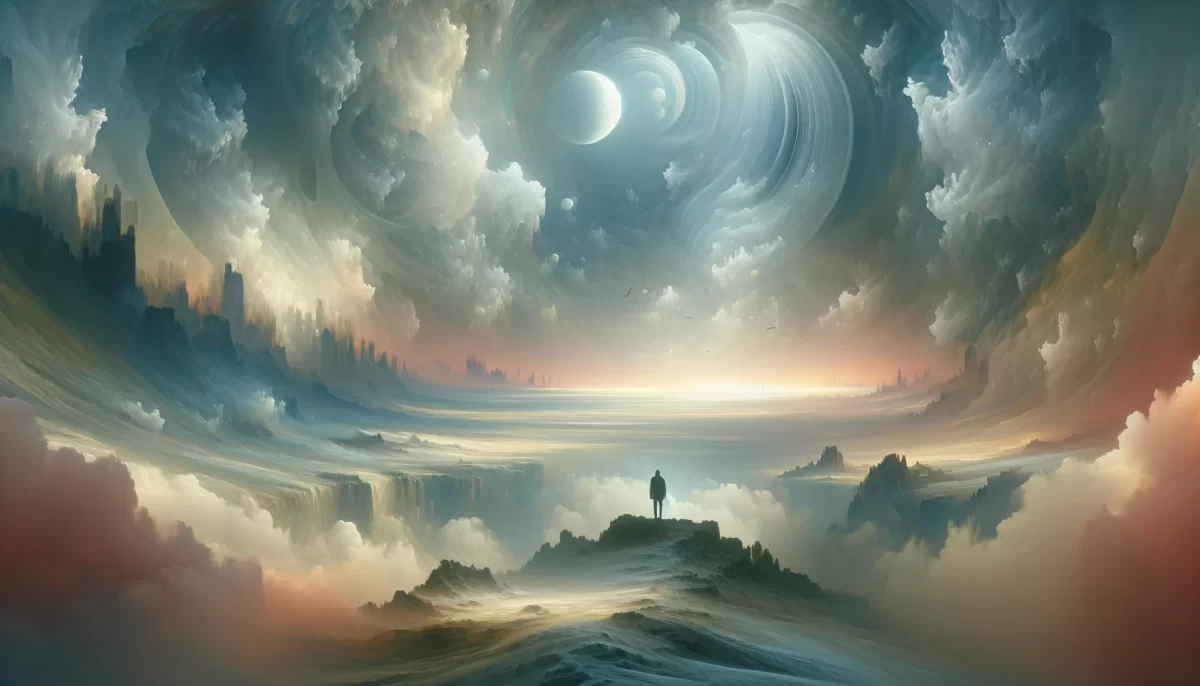
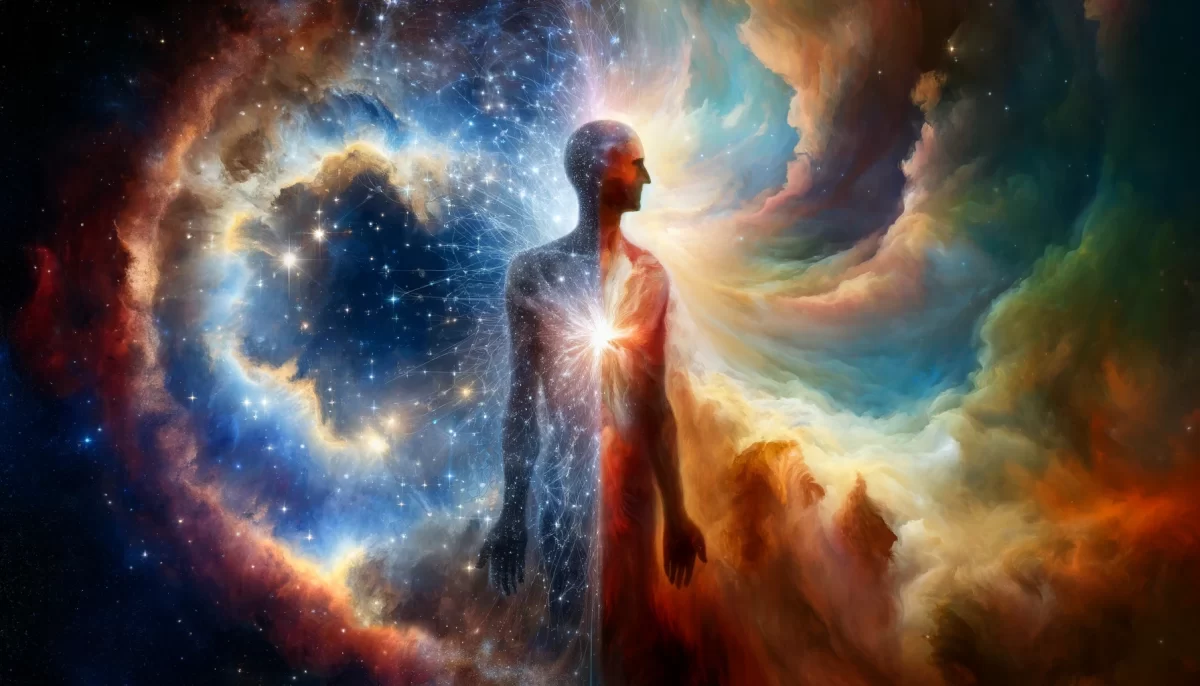


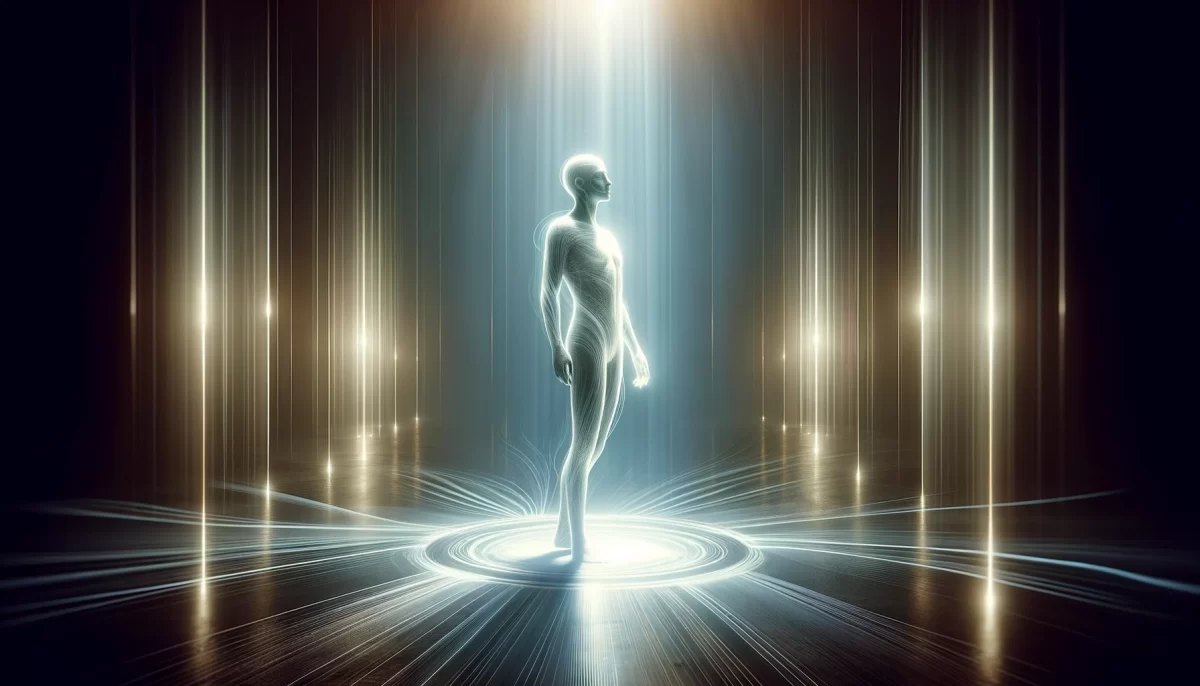
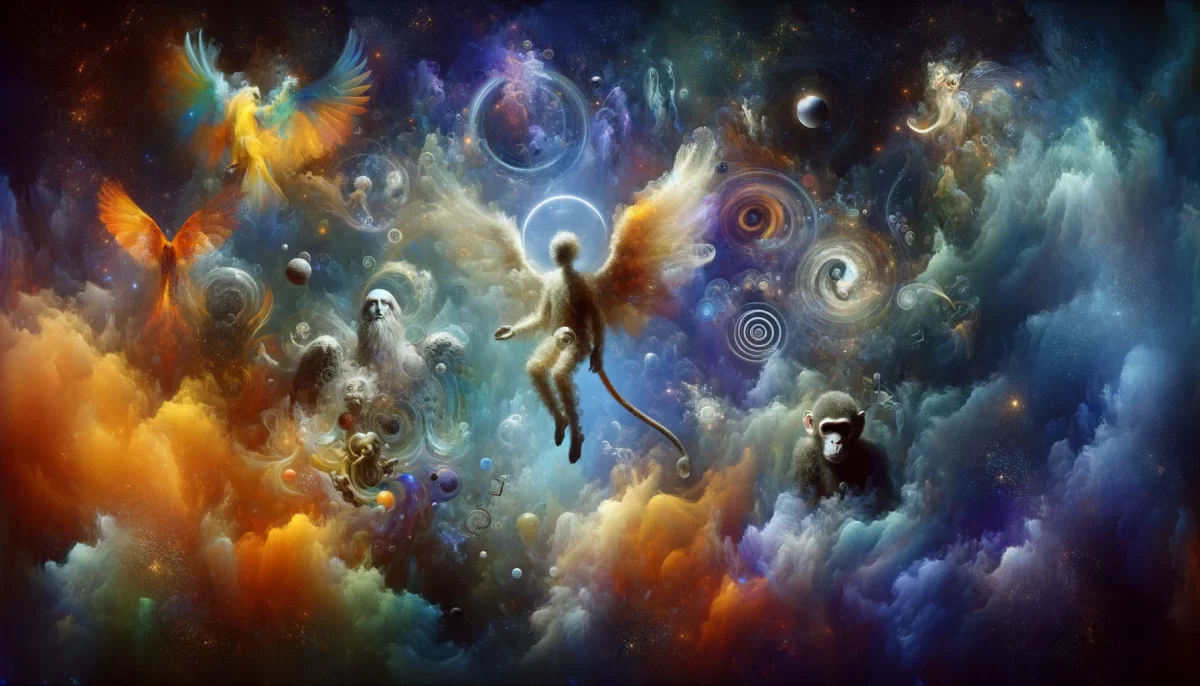
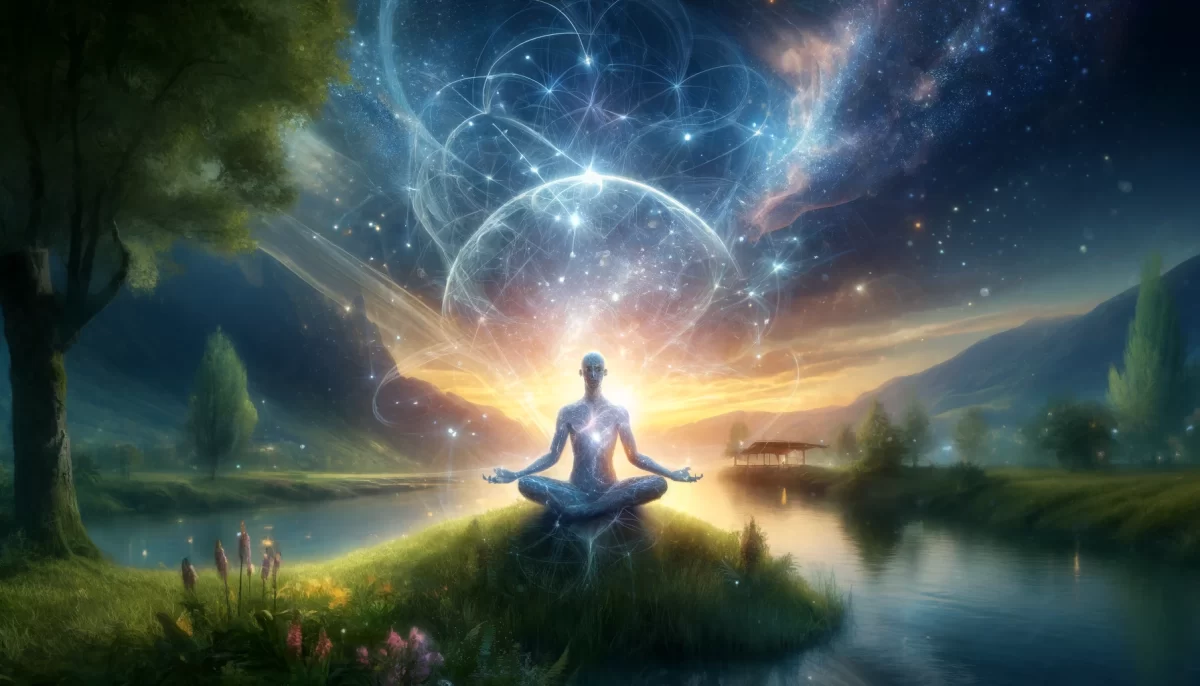
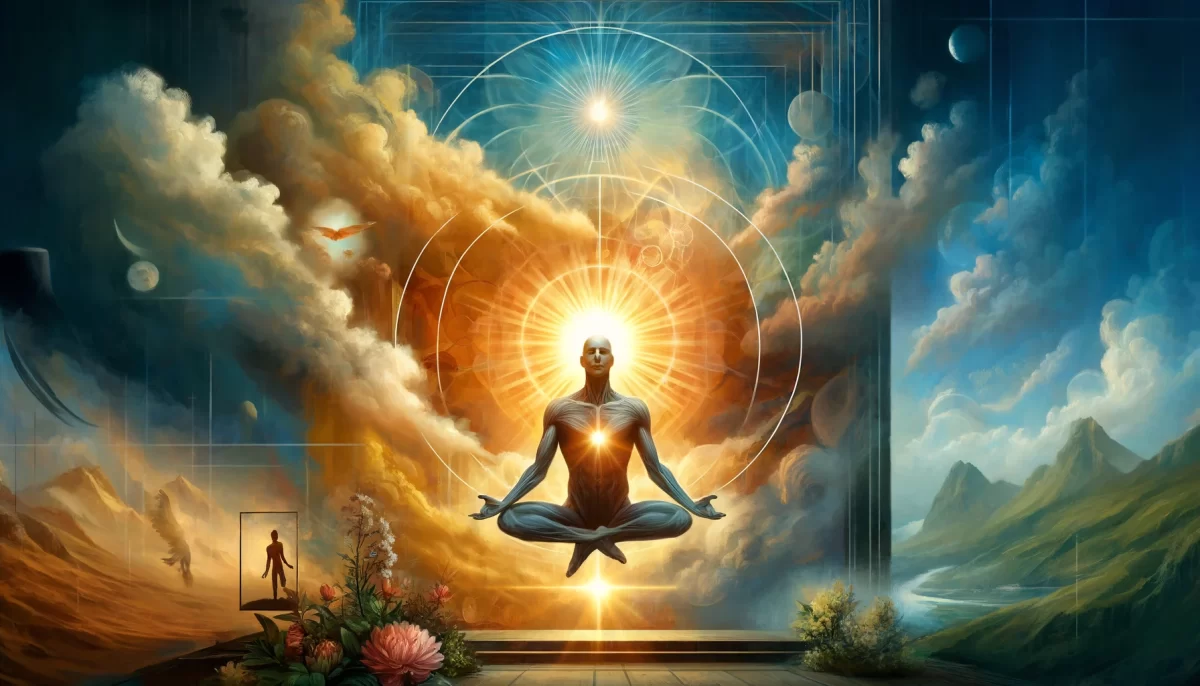
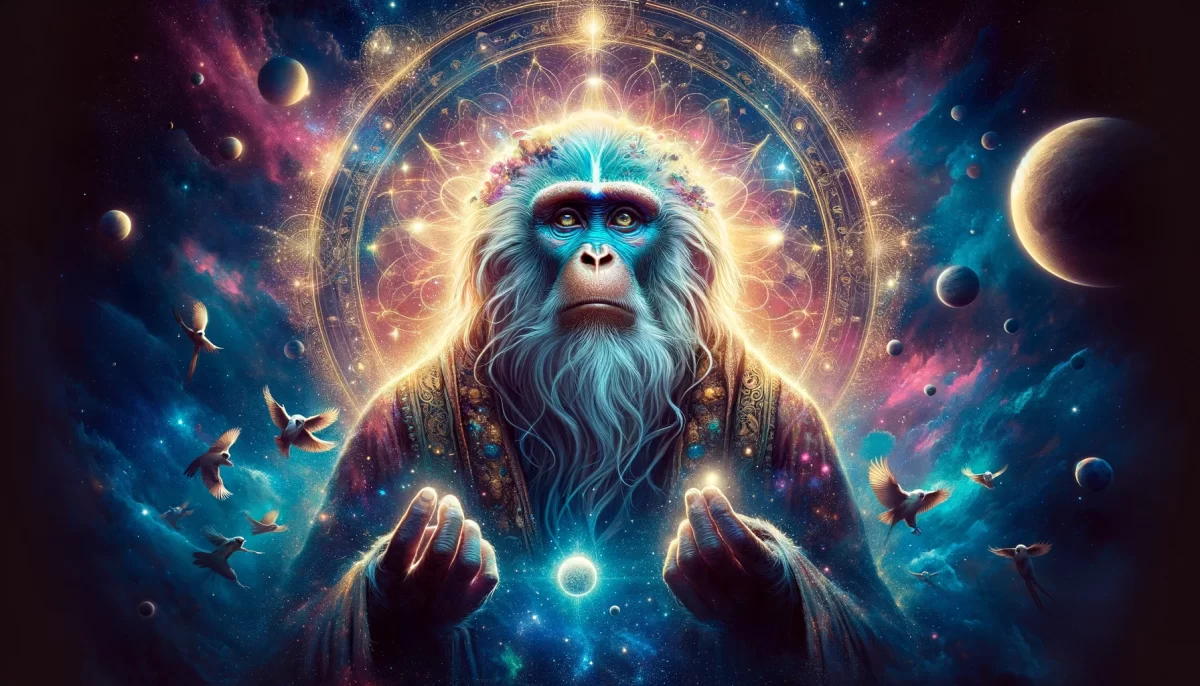
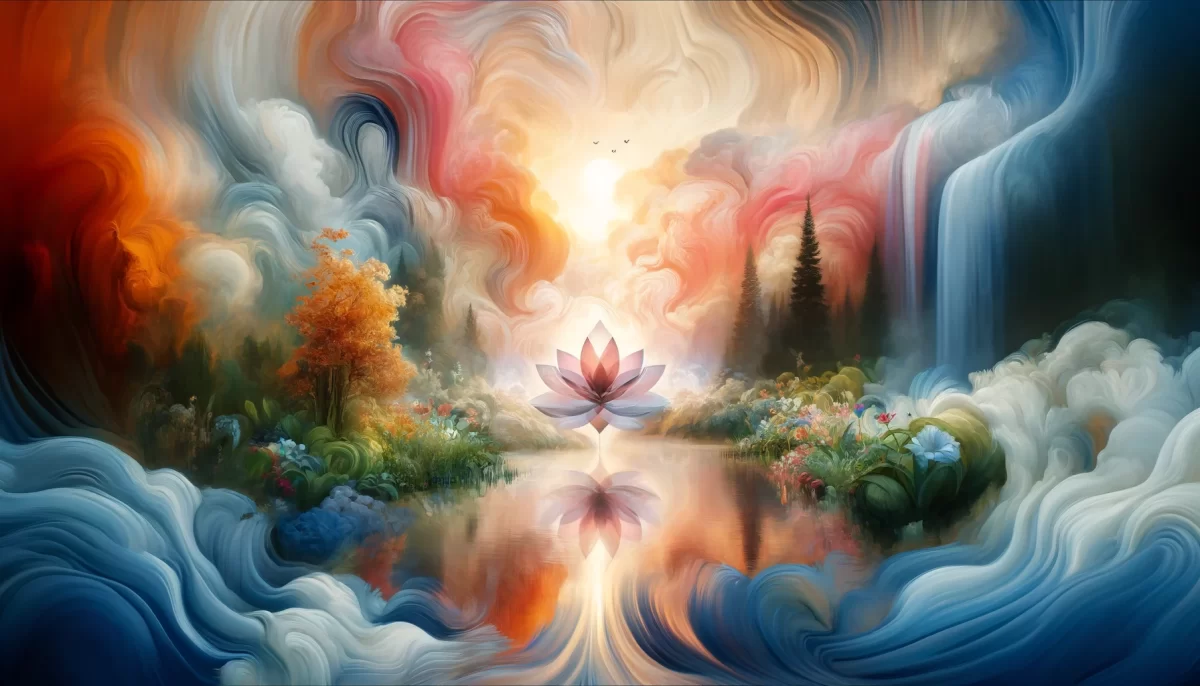
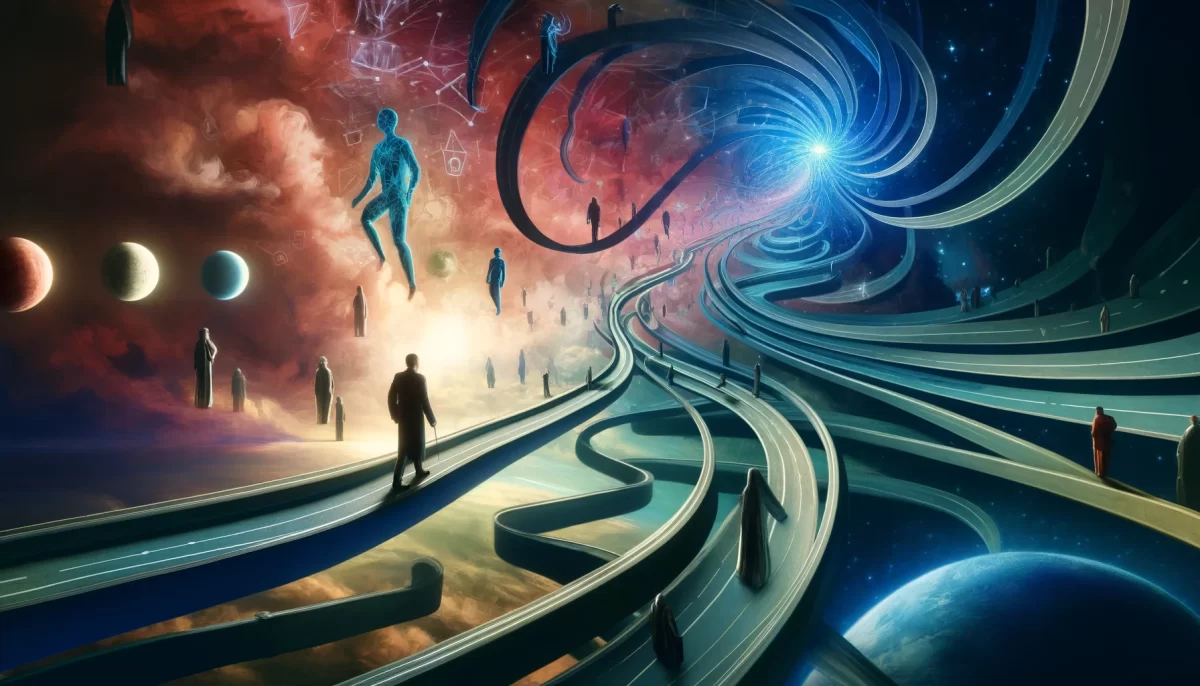
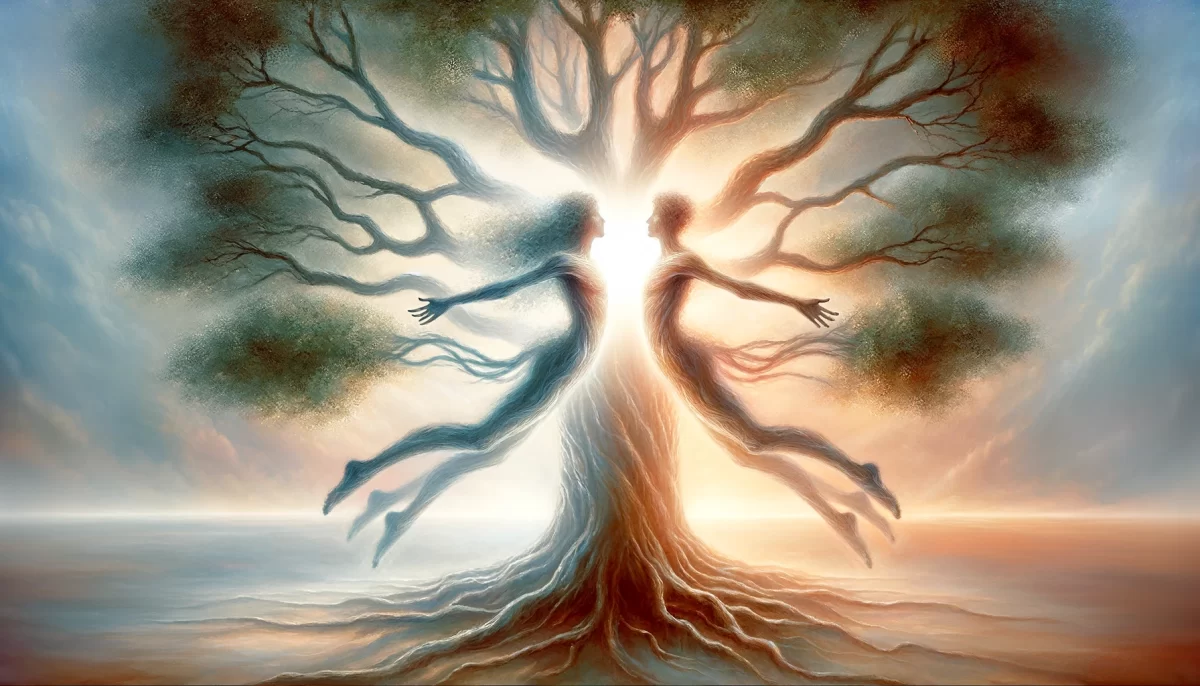
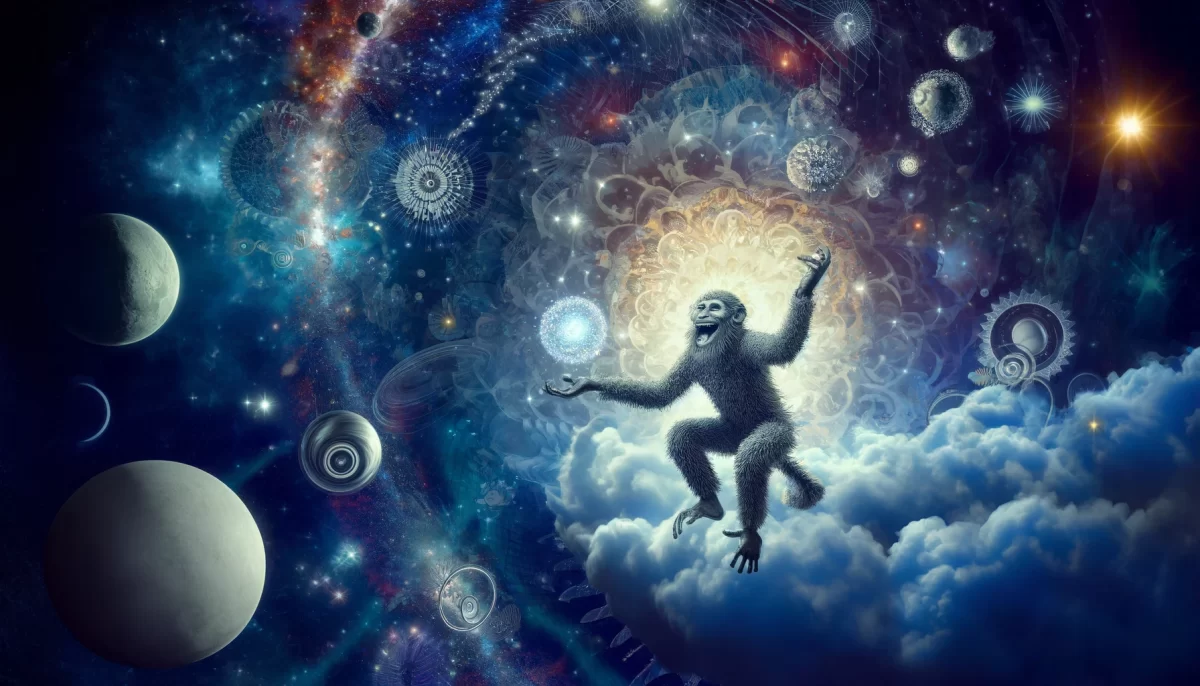
Leave a Reply